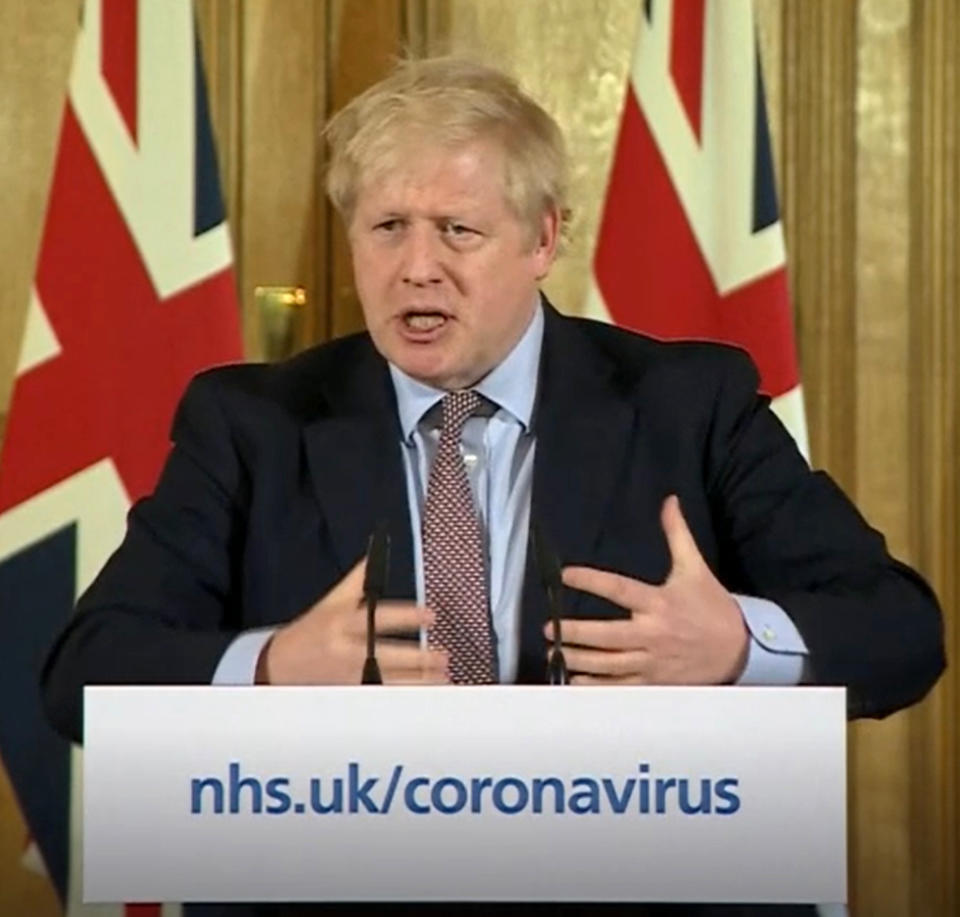Coronavirus: Three ways Boris Johnson's 'drastic action' affects you
Boris Johnson today set out a dramatic escalation of the UK’s coronavirus response.
At his first daily coronavirus press conference in Downing Street, the prime minister introduced the measures after the number of positive cases rose to 1,543 on Monday, a jump of 171 from the 1,372 cases on Sunday.
“It looks as though we are now approaching the fast growth part of the upward curve,” Johnson said. “Without drastic action, cases could double every five or six days.”
Here are the three new measures the government is taking.
Stop non-essential contact and travel
Even people not showing coronavirus symptoms have been asked to cease all “non-essential contact” with others, and “all unnecessary travel”.
As part of this, people are being asked to work from home “where they possibly can”.

Members of the public are also being asked to avoid pubs, clubs, theatres and other social venues.
Meanwhile, with the NHS under increasing pressure, Johnson appealed for people to only use it when they need to, and use its online services rather than call its stretched 111 hotline.
Latest coronavirus news, updates and advice
Live: Follow all the latest updates from the UK and around the world
Fact-checker: The number of Covid-19 cases in your local area
Explained: Symptoms, latest advice and how it compares to the flu
He said these measures are particularly important for people over 70, pregnant women and people with health conditions.
The PM said this will probably be escalated further by the weekend, with those with health conditions set to be shielded from social contact for 12 weeks.
Two weeks of self-isolation for those with symptoms
Johnson said anyone who lives in a household where someone is showing one of the two key coronavirus symptoms – a fever or persistent dry cough – should stay at home for 14 days.
Under the new guidance, people are being urged not to go out: even to buy food or essentials.
Johnson, however, said outdoor exercise is OK provided the person keeps a “safe distance from others”.
Households in this position are being told to ask for help from other people to buy necessities. If this isn’t possible, Johnson said social contact should be minimised as much as possible.
This is an escalation of the government’s previous advice, which was for an individual showing symptoms to self-isolate for seven days.
No state support for mass gatherings
Johnson said “we are now moving emphatically away from” mass gatherings with the state no longer providing emergency workers.
However, he made no mention of them being banned, as has been the case in numerous European countries.
Read more: Furious backlash against Richard Branson over Virgin Atlantic staff's unpaid leave
He said: “This sort of transmission of the disease at mass gatherings such as sporting events are relatively low, but… as we advise against unnecessary social contact of all kinds, it’s right that we should extend that advice to mass gatherings as well.
“We’ve also got to ensure that we have the critical workers we need that might otherwise be deployed for those gatherings, to deal with those emergencies.”
This will come into force from Tuesday.
Nonetheless, some of the UK’s biggest mass gatherings – Premier League and Football League matches – had already been postponed last week.

 Yahoo News
Yahoo News 

